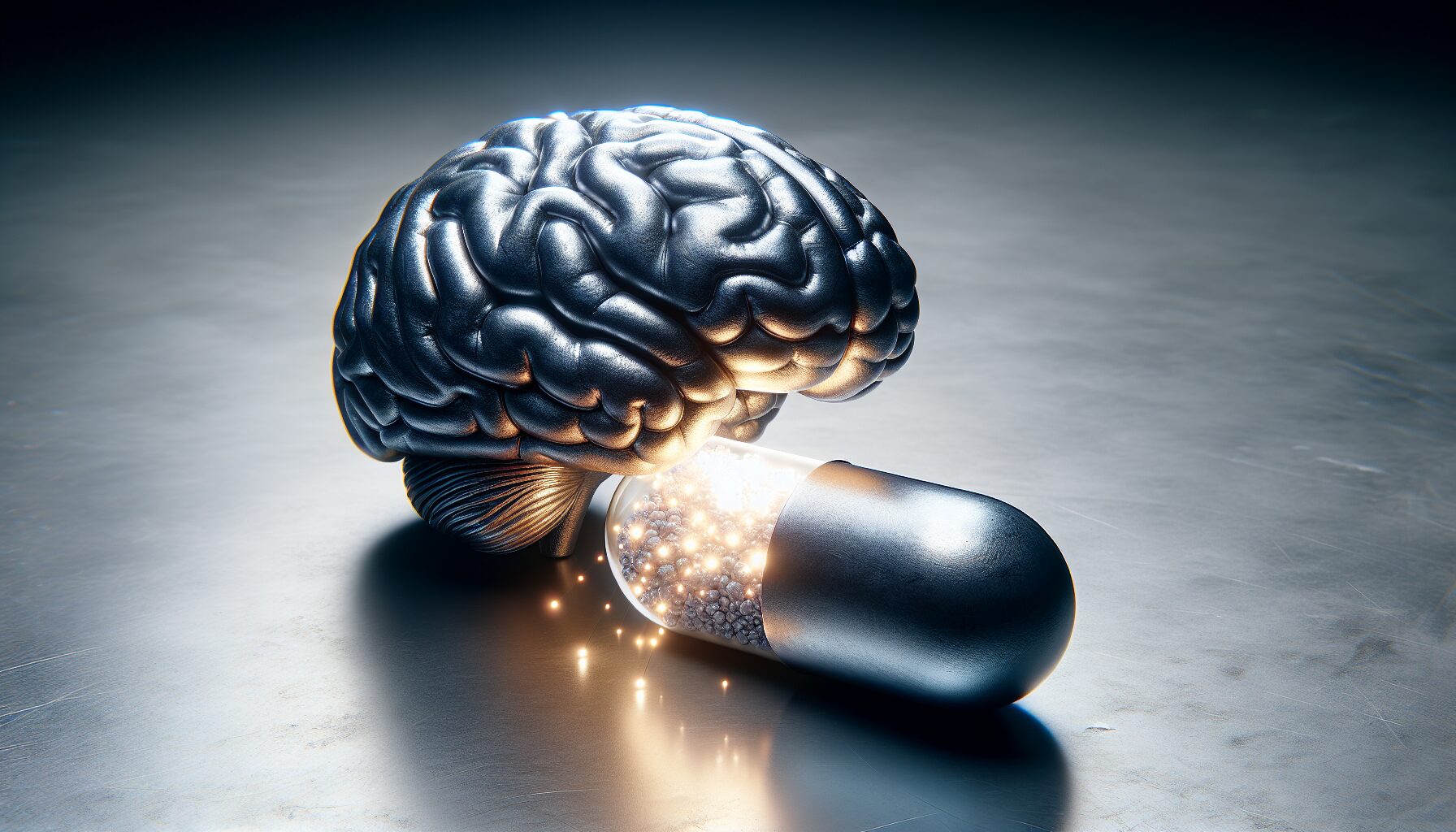
Zinc And Brain Fog Symptoms: Is Zinc Good For Brain Health
You may associate zinc with reproductive health rather than brain health or effects on brain fog. While studies on the links between zinc and brain function aren’t as prevalent, research suggests that the two could be linked together.
Zinc is a natural antioxidant needed throughout the body and is implicated in many different protective functions. Again, you would normally associate a metal with health consequences within brain tissues. Zinc is unusual in that it is a less reactive metal and a supporting part of so many processes that also occur in brain tissue.
Brain blood supply health is a very important aspect of cognitive functioning. New research seems to show that zinc could enhance or support brain blood vessel health.
There is a surge in demand for cognitive enhancing or protective products. Not many of these products seem to include zinc. This is despite emerging evidence that zinc could protect key aspects of brain health. Zinc deficiencies are also of health concern in many countries and it is very important to regularly maintain healthy levels of zinc in the body.
In this article, the benefits of zinc for brain health will be considered.

Is Zinc Good For Brain Health
In terms of health promoting properties, zinc has a natural role as an antioxidant within the body. This means that they reduce build ups of oxidative stress. We generate oxidative molecules regularly and sometimes eat them too. These are highly reactive molecules or free radicals that can cause oxidative stress and damage to the body.
The brain is prone to damages from oxidative stress. There is a considerable amount of energy consumption and generation within the brain too. This means that additional oxidative stress is also generated in brain tissue.
Blood vessels are important to how the brain works. They provide our brains with blood containing vital nutrients for nerve or brain cell functions. Oxidative stress can cause damage to the blood vessels that supply the brain. This can accumulate over time and cause neurodegeneration. This is when the brain deteriorates.
Disruptions to the blood brain barrier can also cause impaired brain function. Excessive blood pressure in the brain can also damage brain tissue and the blood brain barrier. The blood brain barrier is particularly important because it selective in things it lets into the brain. Unusual activity can lead to toxin leakage into the brain.
The natural role of zinc as an antioxidant means it is ideal for protecting blood vessels. Zinc is an important part of various enzymes linked to vascular or blood vessel health. Emerging research suggests that zinc may protect the blood vessels in the brain from damage. This means it could also strengthen our brain integrity and protect brain functioning too.

Research Linking Zinc And Brain Health
Various studies have shown that zinc supplementation can prevent oxidative damage in different body organs and blood vessels. As a powerful antioxidant it could have benefits for brain health through stabilizing brain blood vessel surface proteins and outer membranes.
One important study has identified that zinc has the capacity to protect the exposed parts of our brain blood vessels from intensive local oxidative stress. Through this action zinc was shown to be able to preserve blood vessel and blood brain barrier integrity.
Injury to the brain can often occur from excessive brain blood pressure and impairment of the blood brain barrier. This is an increasingly prevalent condition worldwide. This study showed that zinc has the potential to prevent damages to brain tissue via lowering oxidative stress in blood brain barrier vessels. Oxidative stress also saps key nutrients that are vital for brain function. Zinc could also preserve or enhance brain function through maintaining levels of essential antioxidant nutrients. It has been shown to encourage nerve growth.
Some studies with zinc have shown that supplemental zinc improved the cognitive function of young children. While other studies have also shown that infant head sizes were bigger from mothers with zinc sufficiency rather than deficiency. There seems to be much reduced DNA synthesis in the unborn baby brain with zinc deficiency. Deficiencies in zinc also seem to cause brain malformations and impairs brain function.

Zinc And Dementia
Studies with zinc show that it can regulate healthy transmission within the central nervous system. It is also a structural component of many different proteins in the brain and essential to normal brain functioning.
Zinc is found in high concentrations within the brain and its intake into brain cells is highly controlled. As a metal this is quite unusual considering that metal build ups are usually associated with toxicity. The nature of zinc means that it is relatively non toxic compared to other metals.
Various studies have linked zinc to improvements in memory and learning. There is a lot of evidence to suggest that levels of zinc are very much implicated in dementia like diseases. This includes various degenerative diseases such as Alzheimer’s disease.
Without an important structural component like zinc some basic functions of the brain may not operate as well. Especially in terms of learning and memory where changes really show in progressive dementia diseases. Oxidative stress can cause damage to important nerve cells with brain protecting antioxidants like zinc able to reduce potential brain damages.
This is one reason why adequate zinc could protect the brain from progressive dementia. In Alzheimer’s disease for example there are much higher levels of oxidative stress in the brain. This can come from inflammatory cytokines, mitochondrial distress and increased brain lipid oxidation. A vital inhibitor of oxidative stress in the brain called copper-zinc superoxide dismutase requires zinc to function properly.
These are all reasons why antioxidants, like zinc, or their combinations are neuroprotective which may decrease the risk of Alzheimer’s disease. There are studies showing that supplemental zinc could help with Parkinsons disease.
Various studies demonstrate how important zinc is for brain health. Zinc plays a central role as a supportive antioxidant within the brain and can regulate nervous system transmission.

Summary
Research on the benefits of zinc for brain health are growing year on year as the antioxidant potential of zinc is recognised throughout the body. This metal is more associated with reproduction than brain health. Zinc is found in high amounts in the brain and is considered to be an important part of brain functioning.
The supply of blood to the brain is an important part of cognitive functioning. Research suggests that the antioxidant power of zinc supports brain blood vessel health. Reductions in oxidative stress within blood vessels are thought to preserve blood brain barrier and brain health. The blood brain barrier is important for preventing toxins from entering the brain.
As an antioxidant zinc is a neuroprotective in the right concentrations within the brain. Zinc has been shown to promote nerve growth and improve cognitive function in younger children. Deficiencies in zinc can also impair brain function and cause brain malformations. Zinc status is also linked to improvements in memory and learning.
These are other ways that zinc influences and has benefits for brain health. Zinc could also be implicated in brain degenerative diseases where imbalances are often observed. This includes supporting key antioxidant enzymes.
Research shows that zinc is important for brain health and can influence cognitive functioning.
For more interesting articles, see the main articles page.





